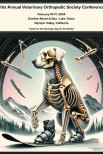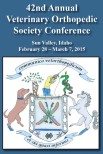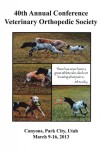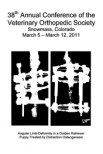This article, as part of the Currents in One Health series, reviews the current state of diagnostics for synovial sepsis. Synovial sepsis is a condition that affects veterinary and human medicine and requires coordinated efforts from both parties, as well as environmental considerations to accurately diagnose and preserve effective treatments.
The article discusses best practices to identify the causative agent in septic synovitis, trends in bacterial identification and antimicrobial resistance patterns across common bacterial species, and a one-health perspective to optimize diagnostics across species. Antimicrobial resistance is a challenge facing both human and veterinary medicine and requires mindful and attentive prescribing to reduce the development of antimicrobial resistance and preserve antimicrobials for future application.
The current standard of care for bacterial identification in veterinary practice is culture and antimicrobial susceptibility; however, positive culture rates from synovial sepsis cases often remain < 50%. Recent developments in advanced bacterial identification present opportunities for improved bacterial identification in synovial sepsis. Increased bacterial isolation will also help guide empirical antimicrobial therapy.
Utilizing information provided from both human and veterinary literature regarding the optimization of diagnostics, continued promotion of research directed at efficient and cost-effective bacterial isolation, and continued reporting of isolates and antimicrobial susceptibility patterns are critical components to improving diagnosis and enabling timely therapy for patients of all species with septic synovitis. AMR is a global health threat that requires cooperation of both veterinary and human medicine as well as environmental consciousness. Antimicrobial stewardship and more ubiquitous reporting may help to facilitate appropriate antimicrobial prescribing and reduce development of AMR.









